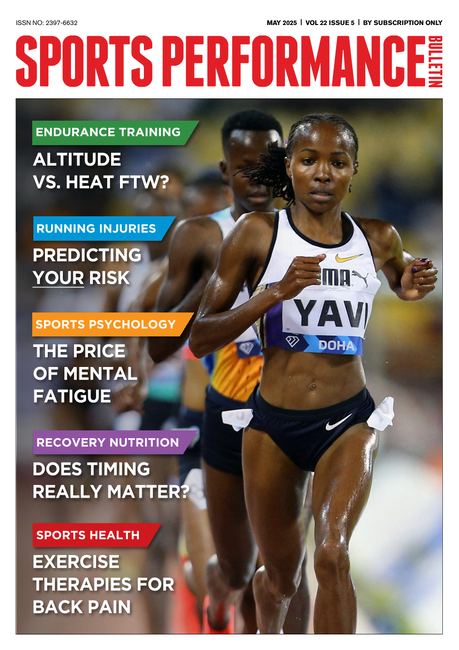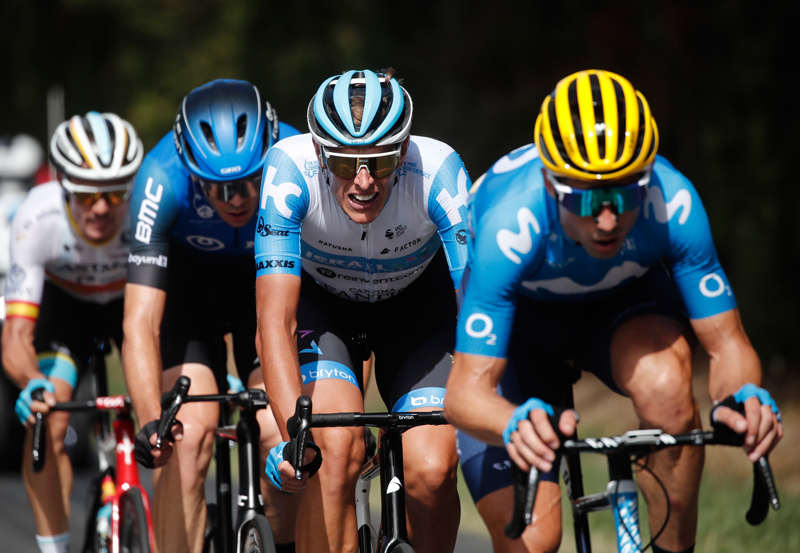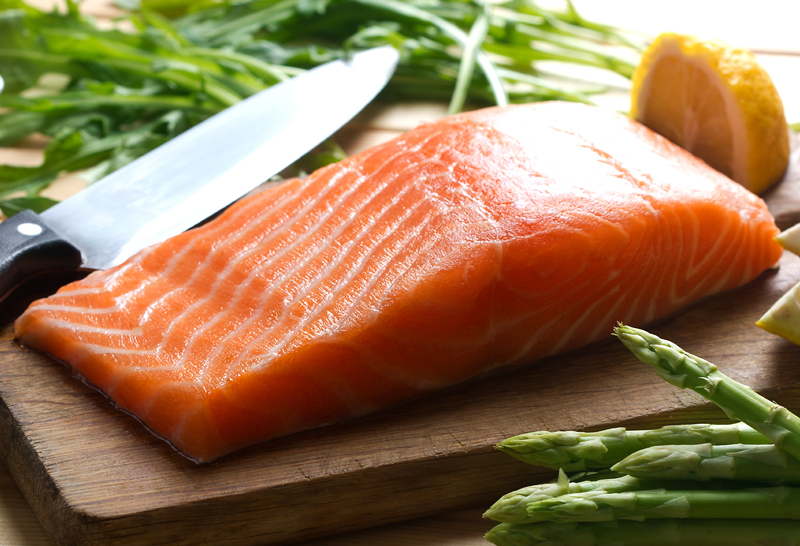Sports drink manufacturers are now adding protein to their products, with claims of enhanced performance and recovery for endurance athletes. But do these claims stand up to scientific scrutiny? Mike Saunders investigates.
During long exercise sessions, especially in the heat, you can lose large amounts of fluid and salts from sweat. In addition, your body’s stores of muscle carbohydrate are depleted by prolonged exercise. The water and electrolytes present in most commercial sports beverages therefore can reduce the effects of dehydration and risks of hyponatremia when consumed during prolonged exercise. In addition, the carbohydrate they contain provides additional fuel for exercise, allowing you to exercise longer.
Numerous studies have shown that you can improve your endurance performance by consuming sports beverages during exercise, especially in prolonged activities (ie more than two hours) at race-intensity. Most guidelines recommend consuming sports beverages with 4-8% carbohydrate at regular intervals during exercise and under laboratory conditions, 600-1400ml of fluid and 30-60+ grams of carbohydrate per hour appear to maximise the performance benefits.
Sports drinks also promote recovery from heavy exercise, in particular by improving the rates of carbohydrate replenishment in the muscles following heavy training. A study carried out at the University of Birmingham, UK, examined cyclists who were performing eight days of intensified training while consuming low or high-carbohydrate intake during and immediately following exercise(1). When consuming the sports beverages with adequate carbohydrate content (6% during exercise, 20% post-exercise), the cyclists maintained better endurance performance, had lower perceptions of effort during training, and experienced fewer symptoms of overtraining. The bottom line appears to be this: when you are performing heavy endurance training or competitions, carbohydrate sports drinks can be helpful for promoting improved performance and recovery.
Why add protein to your beverage mix?
- The potential advantages of carbohydrate-protein sports drinks have centred on two primary claims:
- Enhanced endurance performance;
- Better recovery following training.
At least three studies have been published in the past few years reporting that the consumption of carbohydrate-protein sports drinks improves cycling endurance. Researchers from the University of Texas examined cycling performance during three hours of varied-intensity cycling, intended to simulate competitive cycling conditions(2). Following this period, the athletes rode to exhaustion at a standardised intensity. The study participants rode significantly longer (26.9min) when receiving a carbohydrate-protein beverage, than when receiving carbohydrate-only (19.7min), with both sports beverages significantly outperforming a placebo beverage.
Similarly, our Human Performance Laboratory (James Madison University, US) examined time-to-exhaustion performance in cyclists while consuming sports beverages(3). A group of male cyclists rode 29% longer when consuming a carbohydrate-protein beverage compared to a carbohydrate-only drink. In addition, we replicated these findings in a mixed group of male and female cyclists, with athletes riding 13% longer when they drank the carbohydrate-protein drink(4). Figure 1 shows a summary of results from studies in this area.
Questions
The studies above have sparked considerable debate regarding the merit of protein in sports drinks and at least three issues remain to be resolved:1. Were calorie content differences responsible for performance benefits?
Each of the studies above compared beverages that were matched for carbohydrate content. Thus, protein was added to theoretically ‘optimal’ concentrations of carbohydrate (6-8%) in the drinks. However, this approach resulted in higher caloric content in the carbohydrate-protein beverages. It’s possible therefore that the ergogenic effects were due to these additional calories.
Our laboratory performed a comparison of calorie-matched beverages, and found no differences in time-to-exhaustion between carbohydrate and carbohydrate-protein drinks(5). However, the carbohydrate-protein beverage contained lower carbohydrate levels than the carbohydrate-only drink, so it is possible that the protein may have provided an ergogenic effect that compensated for the lower carbohydrate content.
In an attempt to clarify this issue, we recently compared in the same study(6):
- A carbohydrate-protein beverage;
- A carbohydrate-matched beverage;
- A calorie-matched carbohydrate beverage.
These results mean there is still no current consensus regarding whether extra calories in the carbohydrate-protein drinks explains their benefits. However, at a minimum, the studies discussed above suggest that athletes and scientists have underappreciated the impact of protein ingestion on exercise metabolism. By adding small amounts of protein to your carbohydrate drink, it appears that you receive equal or better performance benefits compared to further additions in carbohydrate content.
2. Is time-to-exhaustion the same as ‘endurance performance’?
Canadian researchers compared sports drink performance during a simulated 80km cycling time trial(7). They observed no differences in performance between carbohydrate and carbohydrate-protein beverages, although both outperformed a calorie-free placebo drink. Based on this study, it has been argued that carbohydrate-protein might not produce enhancements in performance over a prescribed race distance, and that the previous reports of benefits with carbohydrate-protein drinks may have been related to the actual type of performance test used by the researchers.
Performance is a notoriously difficult outcome to measure consistently; one of the reasons for using time-to-exhaustion to assess ‘performance’ is that it can maximise the relative differences between beverages. While carbohydrate-protein ingestion has increased time-to-exhaustion by 13-36% in the studies mentioned above, this might translate to a few minutes of performance enhancement during a long-duration event. This is a relatively small difference to detect with consistency in the laboratory, because it may be less than the typical day-to-day variation between repeated performance trials, and this factor alone may explain some of the varied findings between laboratories.
To address this issue more completely, we have examined performance differences between carbohydrate and carbohydrate-protein drinks during a simulated 60km cycling time-trial(8). We theorised that the potential benefits of the carbohydrate-protein drink would be most pronounced in the late stages of exercise, when the athletes were fatiguing. We therefore designed the trial to include three loops of a 20km course, each ending with a 5km climb.
verall, the carbohydrate-protein beverage produced a small benefit in average time (around 50 seconds quicker) and although this difference was not big enough to be statistically conclusive, all of the performance benefit occurred in the final 20km and most of the difference occurred in the final 5km. This resulted in a significant (3%) improvement in late-exercise performance time over the final climb.
3. How does protein promote improved performance?
Possible explanations include:
Although protein is usually a very minor contributor to the total energy demands of endurance exercise, its role as a fuel (or a regulator of other fuels) could become more important when carbohydrate-protein is ingested during exercise, thus sparing stored carbohydrates, which could be utilised late in exercise, extending endurance;
Some studies have shown that protein ingestion may influence central fatigue, allowing maintained focus and mental performance – could this help explain the ergogenic effects of carbohydrate-protein beverages?
Until we have a better understanding of how protein may produce beneficial effects, a scientific consensus regarding the efficacy of carbohydrate-protein drinks is unlikely. However, there are a growing number of athletes, coaches and scientists who believe that carbohydrate-protein beverages do produce some benefits for their athletes. To paraphrase an analogy from Joe Friel’s popular endurance training manuals, ‘just because we can’t figure out how a bee can fly doesn’t mean that bees can’t fly!’
Protein balance
As an endurance athlete, you are probably not striving to build large, bulky muscles but you need sufficient muscle mass to sustain force production throughout exercise. Researchers from the Netherlands studied protein balance in endurance athletes receiving carbohydrate or carbohydrate-protein beverages(9). When athletes received a carbohydrate beverage during six hours of cycling and running, protein balance remained in a negative state throughout exercise and during four hours of post-exercise recovery. However, when a carbohydrate-protein beverage was consumed during exercise, protein synthesis was increased and protein breakdown was decreased, resulting in a positive protein balance during and following exercise, suggesting that carbohydrate-protein ingestion during exercise can produce some favourable outcomes for your muscular recovery.Muscle damage
We have examined the effects of carbohydrate-protein on a number of indirect markers of muscle damage. In our initial two studies, we observed that blood-markers of muscle damage(3,5) and muscle soreness(5) were significantly reduced when athletes consumed carbohydrate-protein beverages. However, because carbohydrate-protein beverages were provided both during exercise and immediately post-exercise, it was difficult to determine if these benefits were the result of protein ingested during exercise.In a more recent study therefore, we examined the effects of a carbohydrate-protein beverage, which was provided at 15-minute intervals during prolonged cycling, but not afterwards(6). Consumption of the carbohydrate-protein drink resulted in significantly lower markers of muscle damage than a non-caloric placebo, or carbohydrate-only beverages. Even more importantly for performance, the enhanced muscle recovery resulted in significantly better muscle function (measured using a leg-extension test of the quadriceps) than all other beverages 24 hours after the cycling trial (see figure 2)!
Subsequent exercise
For most athletes, the most important indicator of muscle recovery is performance in a subsequent exercise session. Few studies have examined the effects of carbohydrate-protein ingestion on subsequent exercise performance and the findings have been mixed; some have reported improvements with carbohydrate-protein intake(3,10,11) while others found no difference between carbohydrate and carbohydrate-protein beverages(12,13).The study from our laboratory (figure 2) suggests that with carbohydrate-protein ingestion, muscle function may be enhanced for at least 24 hours following heavy exercise. However, this may not translate into improved whole-body performance if the initial exercise bout is not appropriately demanding.
This concept is actually true for all reported ‘recovery aids’ – ie if training sessions are relatively easy, full recovery may occur within 24 hours without any further nutritional supplementation anyway. However, the harder and more frequently you train, the more potential benefit you may receive from optimal nutritional strategies for recovery. In support of this idea, we have observed that runners performing the highest weekly mileages, and cyclists who performed exhaustive exercise when they were relatively unfit, derived the greatest improvements in subsequent performance with carbohydrate-protein consumption.
Optimum protein content
Because there’s so little research in the area, it’s difficult to recommend optimal levels of protein in sports drinks. In addition, the optimal amount of protein is probably influenced by other factors such as the amount of fluid and carbohydrate you are consuming, your personal stomach tolerance, etc.Because carbohydrate is the primary fuel during intense endurance exercise, it is logical to assume that the optimal amount of protein should probably be lower than carbohydrate content (about 4-8% by volume (ie 40-80g per litre) in most commercially available sports drinks.
We compared three carbohydrate beverages (6% carbohydrate each) which contained differing amounts of protein and observed that endurance performance was enhanced with small amounts of protein (1-2%), but no further improvements in performance were present with additional protein(14,15). However, evidence of enhanced muscle recovery was not observed at the lowest levels of protein intake. Though more research is required before specific recommendations can be provided, we generally concluded that protein content should be relatively low (2% or less) in beverages consumed during exercise, but should probably be higher (20% or more) in beverages consumed post-exercise, in order to optimise recovery. Some key points regarding sports drink consumption for endurance athletes are provided in box 2.
Summary
Recent studies of carbohydrate-protein ingestion show that endurance athletes and scientists have traditionally underappreciated protein, and no studies have reported impaired performance with carbohydrate-protein drinks. Given that carbohydrate-protein ingestion during exercise may also enhance your recovery from heavy endurance training and reduce muscle damage, it may be particularly helpful to you if you are performing regular, heavy exercise sessions, where rapid recovery is critical.Michael Saunders PhD is an associate professor of exercise physiology, and director of the Human Performance Laboratory at James Madison University in Harrisonburg, Virginia, USA
References
1. J Appl Physiol 2004; 97:1245-1253
2. Int J Sport Nutr Exerc Met 2003; 13: 388-401
3. Med Sci Sports Exerc 2004; 36:1233-1238
4. J Strength Cond Res 2007; 21: 678-684
5. Med Sci Sports Exerc 2006; 38:1608-1616
6. Int J Sport Nutr Exerc Met 2008; 18:377-392
7. Med Sci Sports Exerc 2006; 38:1476-83
8. J Int Soc Sports Nutr 2006; 3: S20 (abstracts cited; manuscript in review)
9. Am J Physiol Endocrinol Metab 2004; 287:E712-E720
10. J Exerc Physiol Online 2001; 4:45-52
11. Int J Sports Nut Exerc Metab 2005; 15:590-609
12. Int J Sports Nut Exerc Metab 2005; 15:590-609
13. Int J Sports Nut Exerc Metab 2005; 15: 610-624
14. Med Sci Sports Exerc 2007; 39(suppl.): S89 (abstracts cited; manuscript in review)
15. Med Sci Sports Exerc 2007; 39(suppl.): S363 (abstracts cited; manuscript in review)










